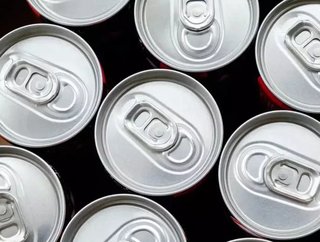Why is aluminium the most recycled drinks packaging in the world?

The inescapable rise in popularity of aluminium cans is apparently a direct reflection of their ease of recyclability. According to new research by Resource Recycling Systems (RRS), aluminium cans are the most recycled drinks packaging in the world.
The Can Manufacturers Institute (CMI), Beverage Can Makers Europe (BCME), and Abralatas commissioned the study, which used global recycling data to calculate and validate the global recyclability rates for aluminium, PET, and glass containers. The study found the global weighted average recycling rate for aluminium is 69%, compared to PET at 43% and glass at 46%.
The study also analysed aluminium recycling rates in various countries: among the highest rates are Brazil (98%), Poland (79%), Japan (77%), Italy (72%), and the United States (55%).
- RELATED STORIES:
- ALUPCO: providing superior aluminium solutions
- Drinks manufacturers search for new ways to weather UK sugar tax
- Drinks companies will turn to technology and collaborate with suppliers in the face of new tax
Speaking on the results of the study, RRS Vice President Anne Johnson said, "Data on beverage container recycling rates for 25 countries, representing 80 percent of the global market, were reviewed and validated by the RRS Data Analytics Team.
“Even with factoring in the data reliability for each container type by comparing high and low error ranges, RRS determined that aluminium beverage containers remain the most recycled container globally. A key finding of the RRS data review is that much could be done to improve the reporting of recycling data in most markets, through more harmonised definitions of recycling and reporting methods."
"Aluminium beverage cans are, by far, the leader of beverage container recycling in the United States," said CMI President Robert Budway. "Although we have always felt confident about making a global claim, we wanted third-party certification. We hope that beverage companies and consumers around the globe will recognize the importance of continuing to recycle this valuable material."
Gordon Shade, CEO of Metal Packaging Europe, the association created through the merger of BCME and Empac, said: "This is a welcome confirmation of the aluminium can's premium status in recycling. It is especially good news for consumers as, through their conscientious and responsible behaviour, they ensure the preservation of the material for future use."
Renault Castro, CEO of Abralatas in Brazil, noted: "It comes as no surprise that this important study confirms this outstanding feature of the can, certifying that our packaging has a true competitive and environmental advantage over our competitors. In times of global warming this is a huge benefit to society."
A further advantage of aluminium is that it’s recycled over and over again. Nearly 75% of all aluminium ever produced is still in use today thanks to its permanent quality and legacy as a truly recycling commodity. This is not necessarily shared by plastics and glass, which are recycled far less, thanks in part to the addition of non-recyclable wrappings and lids.
- BCG/GPI: 10 year roadmap to increase US glass recyclingLean Manufacturing
- Glencore to Supply Lithium-ion Battery Materials in NorwayProcurement & Supply Chain
- Audi/KIT: pilot project for recyclable automotive plasticsSmart Manufacturing
- Rio Tinto offering responsibly manufactured aluminiumTechnology






